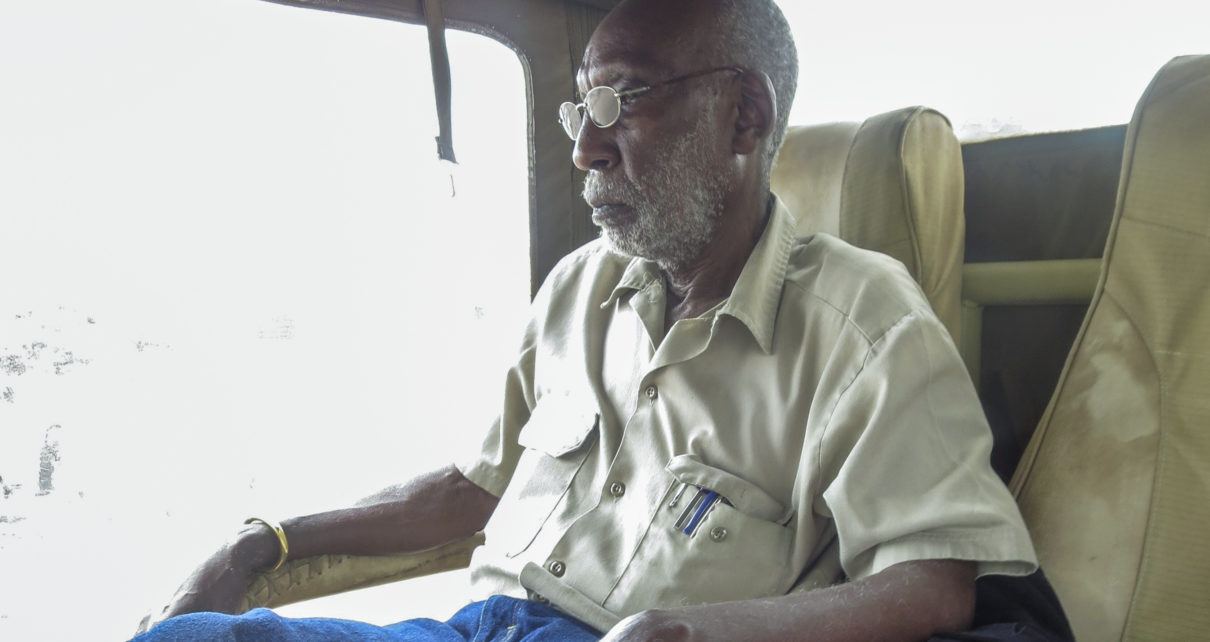The ever armed bow-tie wearing editor leaned back, put his gun on the table and intoned: ‘Chege, I am in charge here’
By Undercover Reporter
He was born on the lips of the Rift Valley in Kijabe, the place missionaries banned alcohol and cigarettes. Chege Mbitiru, distinguished editor and journalist, spent 50 years observing life while puffing at cancer sticks on one hand, Tusker lager on the other-in between writing in the most superlative spare prose down these shores.
Tall and wiry, he preferred jeans and T-shirts. His stubble beards to his bald head, half grown sprouts of hair in need of combing. Horn rimmed glasses on tapered face, a pipe sticking out his mouth, before keraiko went out of fashion. It is a miracle he never coughed charcoal. Then there were the somewhat sunken cheeks like one whistling a permanent anthem, a sardonic smile on to some sarcastic muse.
A sucker for vintage cars, Mbitiru spent most weekends washing, tinkering with their engines. Sometimes repairing them, but loved walking to the bakery that became Nation House along Tom Mboya street, where he was Managing Editor, Sunday Nation.
He had joined the then Nation Newspapers in the 1970s when President Mzee Jomo Kenyatta opened cattle dips on the front pages; left in 1985 when President Daniel arap Moi gobbled half the news bulletins. He was an international correspondent for the Associated Press when local media called President Mwai Kibaki names, but he didn’t give a hoot-unless it touched the petticoat of First Lady, the late lamented, Lucy Kibaki.
George Githii, the ever armed lover of polka dot bow-ties leaned back, put his gun on the table
Chege Mbitiru, 77, succumbed to cardiac arrest when Uhuru Kenyatta is the President; wraps meat with newspapers. Never mind Uhuru’s Old Guy, Jomo, was an editor, a meat-wrapper.
Mbitiru also lived through fierce newsroom politics and power games. He was a senior editorial writer when the abrasive George Githii, who later became a street preacher in Canada, was the garrulous Editor-in-Chief of the Daily Nation for five years to 1977.
In Gerry Loughran’s 2010 book, Birth of a Nation, Mbitiru recalled Githii summoning him to pen a scathing leader against Cabinet Minister Dr Njoroge Mungai, the playboy- presidential hopeful he disliked: “I’m not interested,” retorted Mbitiru. Githii, the ever armed lover of polka dot bow-ties leaned back, put his gun on the table and intoned: “Chege, I am in charge here!”
The death of Chege Mbitiru is an epitaph to journalism as we knew it
Mbitiru recoiled out the door “and went to a dance with my girlfriend, now wife, and danced all night. Then I got a plane to New York next morning and did not come back for a year.”
The death of Chege Mbitiru is an epitaph to journalism as we knew it: From black and white offprint press, to digital colour printers. From manual typewriters to palmtops, from afternoon Special Editions to Breaking News on smart phones, from ashtrays in newsrooms to smoking zones next to the garbage pit. Today, motorists are snapping exclusives of Quarantine escapees- no photo editor.
In his time, people looked for news, paid for it. By the time of Mbitiru’s death, news without news editors reached, and still reach people in real time via WhatsApp, Telegram and Facebook, for free, sometimes, a whole illegally shared newspaper in PDF.
A feature writer still in underpants, the editor scratching balls in bed over a Zoom meeting
The digital disruption changed how media operates. Convergence, the seamless blend of print, television, video, radio and digital platforms, is the new catch phrase though coming over here 30 years later.
Then came the pandemic in 2020. It forced newspapers to be produced from sitting rooms, not newsrooms. A feature writer still in underpants, the designer dripping wet in a towel, the editor scratching gnarled balls in bed over an editorial Zoom meeting.
Chege Mbitiru died at the height of a pandemic, a medical emergency turned economic disaster. It has melted global economies; leaving newspapers bleeding. The pandemic’s attendant fear of touch resulted in dipping copy sales, digital migration having depleted numbers in Schumpeter’s creative destruction bloodbath.
The newspaper business will change irrevocably. Its model of advertising for revenue has been turned on its print head. Writing, editing and designing remotely will be the new normal. Niche newspapers will emerge but go digital with a pay wall, donation button or for free. The once phallic newspaper now rendered impotent: ‘Do we publish news to make money or do we make money publishing news?’ is the question whose answer will see newspapers surviving or going the way of the Dodo.
Deciding it was okay sleeping for donkey years, next to Wanja Mbitiru, his lawyer wife, was one of his best decisions
Yet, newspapers anchored Chege Mbitiru’s professional life. Famed for the brevity of his spare prose, he wrote, with a tinge of Hemingway, mostly in the shadows, like he lived. There & About, his widely read column in the Daily Nation on Monday was where he interconnected everyday life with geopolitics, global affairs.
“If your mother says she loves you, go check it out” he told students at the University of Nairobi School of Journalism. “Check out with your siblings, aunties and uncles whether your mother really loves you, only then can you tell if it’s true.”
Indeed, journalism was the fulcrum of his best and worst decisions: Deciding it was okay sleeping for donkey years, next to Wanja Mbitiru, his lawyer wife, was one of his best decisions. Having studied journalism at Ohio University, his other best decision was quitting as a feature writer for The Saginaw News in the USA. That, despite the leisurely nature of the job, good pay. That, despite prospects favouring blacks as White atonement for pangs of racial guilt.
But he could not wrap around his Kijabe head changing nationalities by the stroke of a pen. Chege Mbitiru headed East- towards home.
Then the magazine folded and the toddler went to pre-primary. I was on tarmac
He had no plans, but met editors at Joe magazine, Kenya News Agency, the Daily Nation.. who bought his crazy ideas. Editor-in-Chief Joe Rodriques at Nation sent him off, a sort of roving foreign editor to file stories which gave the newspaper “status and gravitas.” He toured other African countries, Europe, Asia… and Australia “where the only useful thing I did was go hunting wallabies with Aboriginals and try to worship an Iguana.”
He did assignments in crazy places where “I learnt that sand makes a good mattress. It snuggles very well around body contours. Counting stars became a lullaby and beacon to tomorrow.”
Mbitiru’s worst decision was also connected to journalism: he quit as Managing Editor, Sunday Nation for a magazine, “after all, I had studied magazine writing and editing.”
Life was good. Pay was double for writing 1,500 words a month. With so much time, he reread favourite authors, soiled himself gardening, polished cooking skills. He enjoyed babysitting, interviewed subjects as his toddler (shortly to be two) wandered around. “Then the magazine folded and the toddler went to pre-primary. I was on tarmac.”
He went shopping for a job at a global outfit against the warning of a Jewish friend who worked there. “On account of your race and nationality, you will always remain at the bottom of the totem pole, no matter what you do.” He thought he was suffering from Persecution Complex. A dozen years later, his Jewish friend-who left as he joined- was right. He was a bitter man.
But the toddlers grew up: Njihia, a screenwriter and Nyaga, an IT expert, both attended Western Carolina University.
“If your mother says, she loves you,” warned Chege Mbitiru, “go check it out.”

